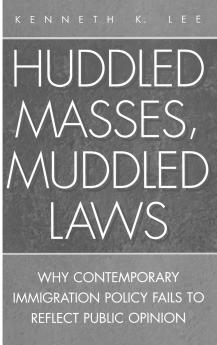This Book is Out of Stock!
by
English
Hardback
₹5283
₹6375
17.13% OFF
(All inclusive*)
Delivery Options
*COD & Shipping Charges may apply on certain items.
Review final details at checkout.
Looking to place a bulk order? SUBMIT DETAILS
About The Book
Description
Author
In 1997 the United States accepted more legal immigrants than all other countries combined. This large influx of newcomers however has alarmed many Americans. Immigration is a controversial issue because it intersects with the most contentious issues of our time: multiculturalism bilingualism unemployment crime etc. Opinion polls since 1965 show that a strong majority want to reduce immigration. Yet our government has refused to respond to the public''s wish. In 1996 Congress scuttled a proposal to reduce immigration by a third. (Earlier in 1990 Congress voted to increase immigration by a whopping 40 percent.) This is all the more surprising because the United States has had no qualms about severely restricting immigration in the past.Kenneth Lee explains why recent immigration policy has failed to reflect the public opinion by approaching the question from a broad historical outlook and from a focused contemporary perspective. He traces several momentous historical changes that have abetted the pro-immigration block and weakened the restrictionists'' clout (mainly the rise of conservative economics in the 1970s and the growing racial liberalism in America). He also examines immigration policy on a micro-level: detailing the intense lobbying that went on for the 1990 and 1996 immigration bills and he also shows how unlikely players as for example Christian Coalition''s Ralph Reed helped defeat the restrictionist bill in 1996.
*COD & Shipping Charges may apply on certain items.
Review final details at checkout.
₹5283
₹6375
17% OFF
Hardback
Out Of Stock
All inclusive*
Details
ISBN 13
9780275962722
Publication Date
-17-09-1998
Pages
-184
Weight
-362 grams
Dimensions
-156x234x12.7 mm








